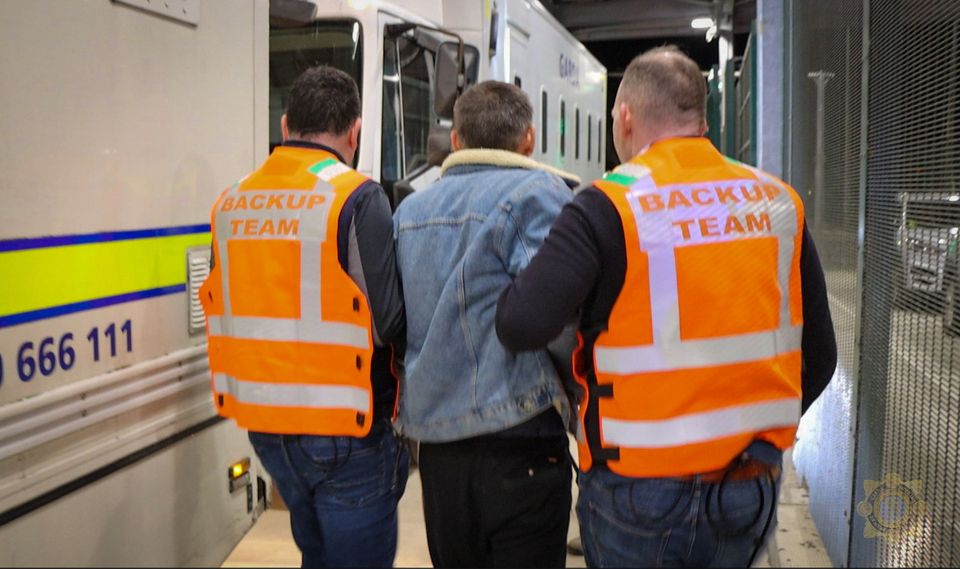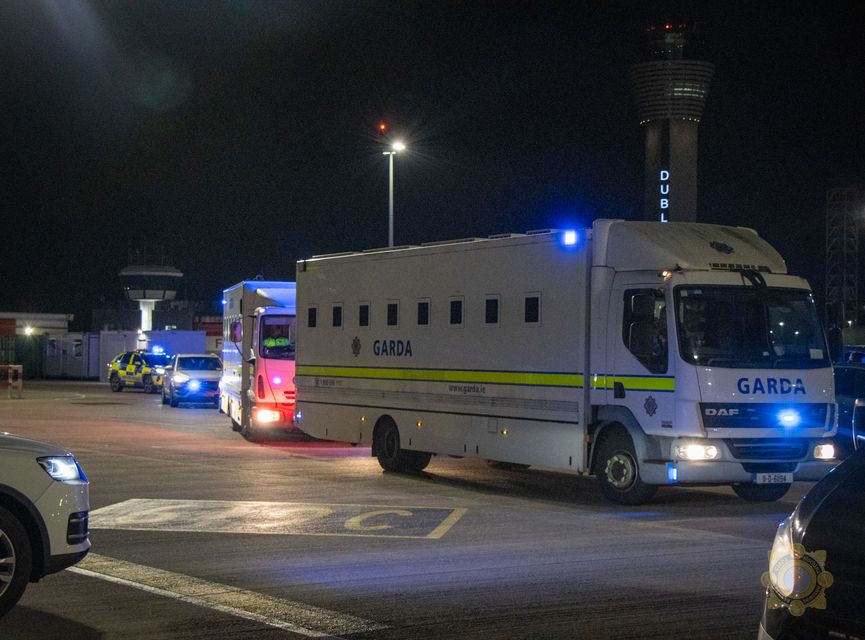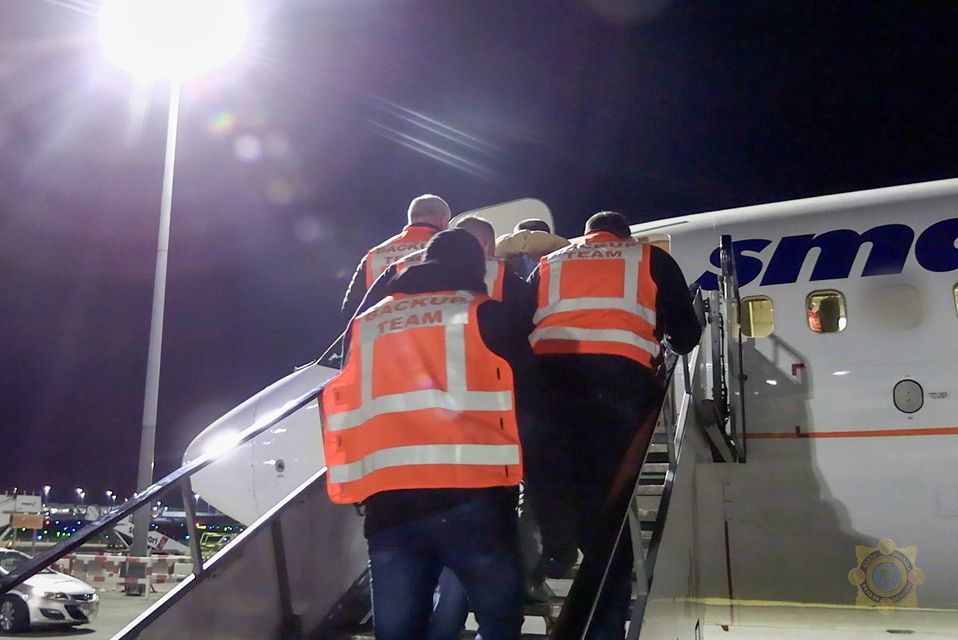The deportation of 32 people to Georgia overnight marks a “significant start” towards a “more effective” immigration system, the Justice Minister has said.
Twenty-eight men, three women and one child were removed as part of the largest deportation operation in six years.
The 102,476 euro-flight is the first under a contract signed by the Government in November, which allows for charter aircraft for deportations.
The returnees were accompanied on the flight by Garda personnel, medical staff, an interpreter and a human rights observer (Garda/PA)
Senior government figures have pledged to strengthen Ireland’s immigration system amid a surge in asylum applications in recent years.
Reacting to the news, Tanaiste Simon Harris said that “a fair and firm migration system must ensure deportations are effective and efficient”.
“If you don’t have a legal right to be here, our system must act and today is evidence that it is and it will,” he said on X.
Georgia is among the top five countries from where the most asylum applications are made to Ireland.
It has been designated a “safe” country by Ireland for the purposes of asylum applications.
Referencing a strain on housing supply, Justice Minister Jim O’Callaghan said they needed to “try to reduce those pressures” by informing people from “generally safe” countries that their application for asylum is likely to be refused.
“If they seek asylum in Ireland, the likelihood – obviously, it will still be assessed – the likelihood is that you’ll be refused asylum if you seek it from Georgia,” he told RTE’s Morning Ireland.
“I don’t derive any enjoyment from this, but it is part of my function as Minister for Justice that we have an effective immigration system.
“And if people have been served with deportation orders they must leave the country, and if they don’t do it voluntarily, we will enforce it.”
The Georgians were brought to the airport in Garda transport (Garda/PA)
He said the cost of the flight to Georgia was 102,476 euro, and that further flights will be scheduled in the future.
“Today is a significant start in ensuring that deportation orders are enforced and part of a more effective immigration system generally,” he said.
The chartered flight left Dublin at 10.30pm on Thursday and the Georgians arrived safely in Tbilisi on Friday morning.
All of the people on board had previously received deportation orders, Mr O’Callaghan said.
The returnees were accompanied on the flight by Garda personnel, medical staff, an interpreter and a human rights observer.
The 102,476 euro-flight is the first under a contract signed by the Government in November, (Garda/PA)
Garda Commissioner Drew Harris said it was the largest “removal operation” carried out by the Garda National Immigration Bureau in more than six years.
“An Garda Siochana continues to play its role in enforcing immigration legislation and maintaining the security and integrity of our borders,” the commissioner said.
“I want to express my thanks to all the members of An Garda Síochana involved in the planning and implementation of this significant operation, particularly those involved in tracking down and finding these individuals.”
The Department of Justice said that charter flights provide an alternative to commercial flights and can be more appropriate in circumstances when a group of individuals are being removed to the same destination.
It said enforced removals are carried out as “a measure of last resort” when the person concerned has not removed themselves from the state or availed of “assisted voluntary return measures”.
It added that it considers voluntary return to be the preferred option for applicants refused international protection, involving the person leaving of their own accord.
If someone leaves voluntarily, no deportation order is issued. In 2024, the number of voluntary returns increased to 934 compared with 213 in 2023.
Meanwhile, 2,403 deportation orders were signed in 2024 – representing a 180% year-on-year increase.
In 2024, 1,116 people departed the state under various mechanisms including voluntary return and enforced deportation.
Mr O’Callaghan said the department does not know what happened to the other 1,287 people, but it is likely that they had left the state.
He said: “It is likely that they have already left. They may have gone into Northern Ireland or into the UK. We’re not certain in terms of what happened to them.”
This year more than 700 deportation orders have been signed and more than 240 people have left Ireland.
Mr O’Callaghan said 18,500 people applied for asylum in Ireland last year.
“I suppose the message that needs to go out is, if you’re seeking international protection, if you’re seeking asylum and you’re not entitled to asylum, don’t come to Ireland,” he said.


